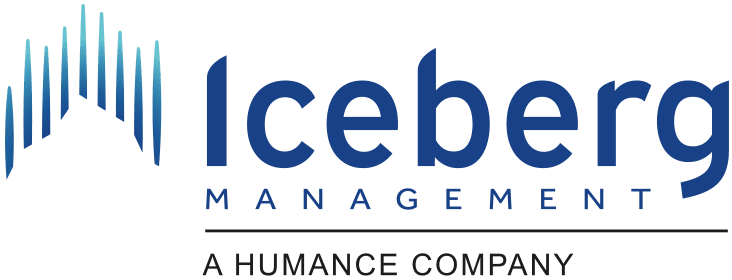
Organizational Structure
July 6, 2021
Going Back to the “Abnormal”: The Expected Impacts on Management Practices
Back to the office? Already?
Yes! After a long period of isolation, it is normal that this topic is making headlines. Many may harbor hesitations and dilemmas, namely listing the pros and cons. Meanwhile, others wonder about the risks and tips for a safe and effective return to the office.
People are eager to relive in-person work relationships and reconnect with the joy of teamwork. But as long as social distancing is the norm, the reality is that office towers won’t be able to accept all their employees immediately. Rigorous logistics are required in the event of an outbreak.
Indeed, by bringing out new expectations and needs within companies, the impact of COVID-19 marks a turning point in the era of traditional management.
How will returning to the “abnormal” influence managerial practices? Moreover, how will the role of the manager be influenced?
The crisis: a gas pedal for change
First of all, themes such as teleworking, employee autonomy, and management reasoning were not born with the crisis. They simply occupied a less dominant place among the strategic concerns of organizations. The health crisis has brought them to the forefront of the professional scene by making them strategic levers to not only attract and retain talent within organizations, but also to drive their operations more efficiently.
Identify and respond quickly to needs for flexibility
One of the manager’s greatest assets will be their ability to quickly identify the needs of their team and respond quickly and flexibly. However, as a manager, you should not expect every decision you make to be a hit… The truth? Whatever resolution you make will have a significant impact on your organization, and it’s almost impossible to ensure everyone’s satisfaction.
In addition to this, 70% of change programs in the organization do not succeed, according to McKinsey & Company[2]. This is because a good portion of people are resistant to change, which makes for a very difficult journey. What about the fortunate 30% remaining? If you want to be one of them, the key lies within managing the transformation- the transformation that will affect all organizational axes, both vertical and horizontal.
Participative and transversal management
The days of vertical decision-making are over, and more collaboration is in order. This is now a priority expectation for employees within organizations. The successful manager will gain legitimacy by delegating even more to guide employees towards greater autonomy and responsibility.
Added to this, is a new, more cooperative dynamic was put in place during the health crisis. This led the teams to break down their respective barriers and work in a more cross-functional manner. Each team is mobilized at the forefront, attached to a goal, to a common and global vision. All of this while putting their own strategic objectives on the back burner to focus on the passage of this global crisis. The manager will then have to develop more transversality within the teams.
Making work rhyme with accomplishment: control versus trust
Happiness at work has been a theme for several years. In fact, over the past year, it has become an essential managerial lever. While employees remain attached to their work, they no longer make it a top priority. Indeed, the adoption of telecommuting has allowed for more comfort in terms of flexibility of schedules and daily organization, an asset that a large majority of employees wish to keep after the crisis. Micromanagement is giving way to a management style based on trust.
Reinventing the sense of belonging: ready for a “Phygital” world?
The rise of telework is indisputable and its anchoring in tomorrow’s organizations is strong, there will be no turning back. But what about the need for social connection? Employees are increasingly expressing their wish to reconnect with people, by wanting to return to work on an ad hoc basis rather than on a regular basis, by balancing telework and face-to-face work. Teleworking has its virtues, but when done full time, it impacts employee motivation and commitment. To meet the expectations of their employees, tomorrow’s workplace, referred to by some as “Phygital”, will be a balance of telecommuting and face-to-face. It will be led by skilled managers who can transmit the corporate culture while maintaining a sense of belonging.
Strengthening the feedback culture
If the traditional manager uses feedback regularly in their toolbox, they will experience an evolution. The need for autonomy and delegation is becoming even more present for employees. These needs go hand in hand with the need to be inspired and accompanied by manager-coaches. Thus, to allow their team to reach their full potential and achieve their objectives effectively, competent managers will have to master the art of giving and receiving authentic feedback.
Fostering happiness and mental health at work
Finally, the health crisis has highlighted the importance of considering the mental health of employees on a regular basis. Tomorrow’s managers will have a crucial role to subtly and authentically probe the well-being of their team. One of their skills will be to detect the “warning signs” of potential psychological distress in their employees. It is by demonstrating emotional intelligence in order to listen, understand and support their team that they will reach their performance targets.
In conclusion, this pandemic has put the manager back at the heart of the organization. They must remember the importance of fulfilling their role as a strategic and humane leader, now more than ever.
By Albertine Girard, Adm.A, M.Sc, ICF, Consultant in strategic management and professional coach,
Contributor to the HR blog – Iceberg Management
By Gisèle Ghossein, MBA, Adm.A, Management Coach and Senior Human resources consultante
HR blog Editor – Iceberg Management
You want to prepare your team to successfully manage change and transformation? We have certified trainers and leadership experts who can assist you.
[maxbutton id=”10″ ]
[1] Fournier, Marie-Ève (2021, 20 mai). «La recette du retour dans les tours », La Presse, section Affaires. Récupéré de https://www.lapresse.ca/affaires/2021-05-20/la-recette-du-retour-dans-les-tours.php
[2] Stamenova, Asya (2020, 28 avril). 10 étapes pour un bon processus de gestion du changement, Lumaps. Récupéré de https://www.lumapps.com/fr/blog/gestion-du-changement/10-etapes-pour-un-bon-processus-de-gestion-du-changement/
Albertine Girard, C.Mgr., M.Sc, ICF
HR Blog Contributor
Plan a connection callAdvice Centre
Discover more inspiring content
Find out how our methodology has transformed companies from different sectors. Each article is proof of our expertise.

Culture and Health Wellness
Balancing teleworking and face-to-face work
Post-pandemic adaptations in work life mean a shift to hybrid model incorporating physical & teleworking and promoting social collaboration.

Organizational Structure
Business continuity plan : how to prevent the unpredictable
A Business Continuity Plan is crucial in preparing for unforeseeable changes to ensure the sustainability of a company.

Employee Coaching & Training
Why micro-learning is essential
Micro-learning maximizes learning in short bursts, enhances skill acquisition and increases engagement, making it a powerful efficiency lever for team building.

Organizational Structure
Help your employees recharge their batteries
Employees' energy and productivity are crucial. Recharge their batteries with HR practices, flexibility, recognition, and workload balance.

News & Editorials
Good luck Caroline!
Caroline goes on sabbatical after 5 years of loyal service. New team leader and consultant onboard. Exciting times ahead for Iceberg Management!

Employee Coaching & Training
Sleep: a secret weapon to increase productivity!
We have in our possession a secret weapon that we often undervalue, and which acts directly on these elements: sleep.

Recruitment & Employer Brand
The story of anonymous resumes
Anonymous resumes : Are you for or against such a practice? Does this practice really help reduce discrimination in hiring processes?

Organizational Structure
Zoom fatigue: Do you recognize it?
The sales of Zoom saw a 370% increase between 2019 and 2020. Dr. Andrew Franklin believes Zoom fatigue arises from continuous partial attention.

News & Editorials
Cohort T for Transformation comes to life!
Iceberg Management brought together more than 20 elf-employed workers and micro-entrepreneurs in its first two groups of Cohort T for Transformation.

News & Editorials
Cohort T for Transformation
A unique coaching and co-development path specially offered to self-employed workers : Cohort T for Transformation

Culture and Health Wellness
The virtual employee experience
COVID-19 is forcing us to drastically redefine the way we work. It is time to wipe the slate clean and rethink the employee experience.

Organizational Structure
Physical health: The evil side of teleworking
Specialists have warned of risks to mental and physical health from teleworking. Employers must encourage physical activity to support their staff's well-being.
